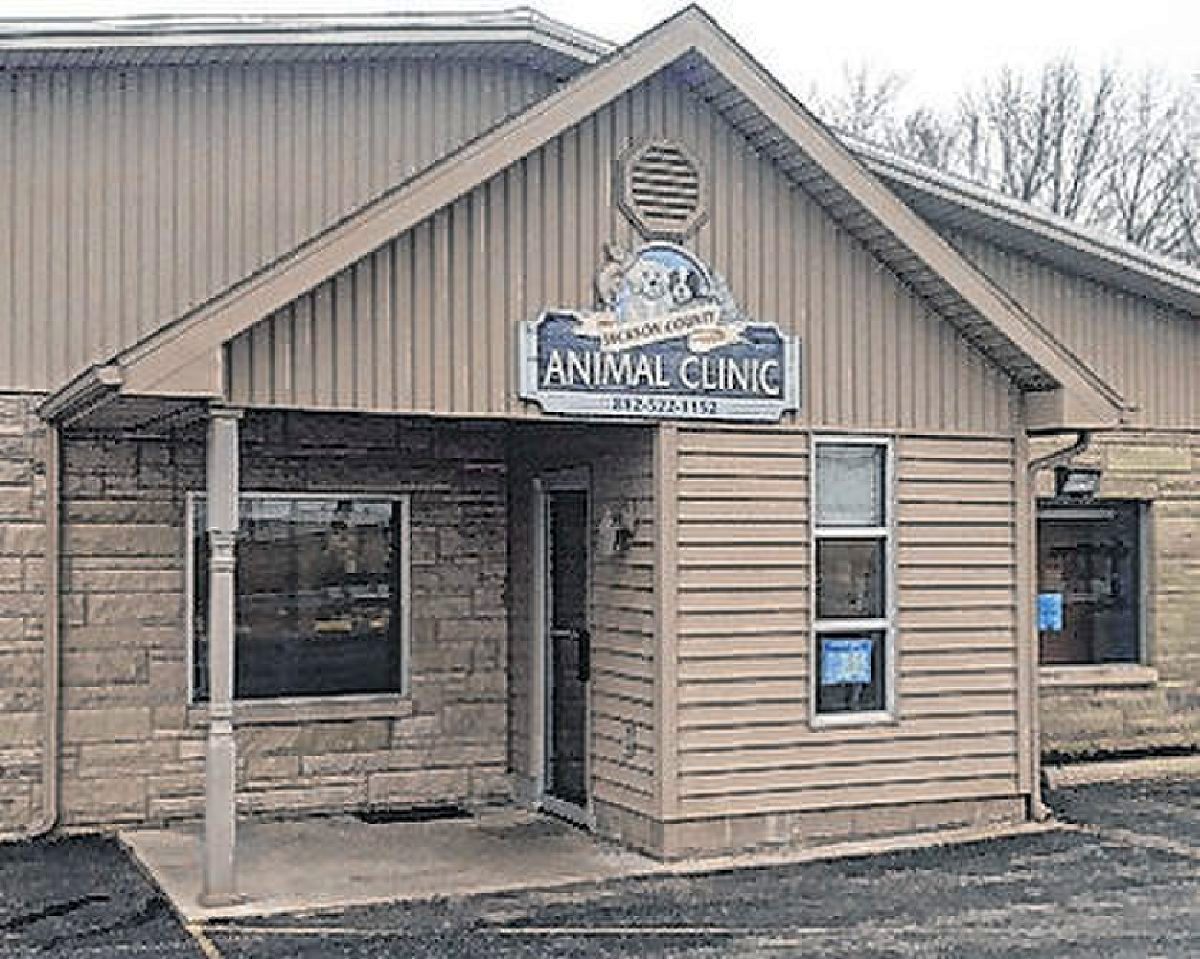
During this time of physical distancing, the veterinary clinics in Jackson County continue to do their part when it comes to the essential work of caring for our pets.
“We are very fortunate to have a spacious office where keeping distance between people has been successful,” said Dr. Paul Rennekamp of St. Francis Pet Hospital in Seymour.
“We are encouraging our clients to arrive with one person per pet,” he said. “Without delay, we get the client to an exam room, and the doctor is the only one allowed in the room.”
[sc:text-divider text-divider-title=”Story continues below gallery” ]
He said their entire staff is wearing protective masks all day long and washing their hands obsessively.
“The American Veterinary Medical Association provides reliable, up-to-date information on their website,” Rennekamp said. “One of the key points from AVMA states that at this time, there is no evidence that the virus can spread to people from the skin or fur of pets.”
He said another point is there has been a tiger at a zoo in New York confirmed to have the virus.
“There were several other large cats at this zoo who were not tested but had respiratory symptoms,” Rennekamp said. “No other animals at the zoo were showing similar symptoms, and all of the large cats are expected to recover.”
Finally, if a human is not ill, they should interact with animals as they normally would.
“Since this virus is not fully understood, the AVMA is recommending that people ill with COVID-19 should restrict contact with pets and other animals just as they would restrict contact with humans,” Rennekamp said.
Dr. Klent Brown with Jackson County Animal Clinic said right now, they are trying to limit people in all three of their clinics in Seymour, Bedford and Scottsburg.
“A couple weeks ago, we went to curbside service only, so pet owners call us when they arrive in the parking lot,” Brown said.
“If they need pet food or supplies, they can call ahead and we’ll get it ready for them and let them know the total so they can pay over the phone or a staff member will collect the cash or check when delivering the items to the vehicle,” he said.
Brown said he has been practicing veterinary medicine for 20 years and it’s hard to believe this is all really happening.
Brown said there can be coronavirus in animals, but not the same kind as what the world is dealing with now. He said lack of education about COVID-19 is a major factor.
“There was a study of an injectable cattle and hog dewormer called ivermectin that showed it might possibly slow down COVID-19,” Brown said. “This medication is not meant for people, and some farm stores have removed it from their shelves in fear that some might buy the dewormer and try to inject themselves.”
According to monash.edu, a study led by researchers at Monash University showed while ivermectin was shown to be effective in the lab environment, the drug cannot be used in humans for COVID-19 until further testing and clinical trials have been completed to confirm the effectiveness of the drug at levels safe for human dosing.
The potential use of ivermectin to combat COVID-19 remains unproven and depends on funding to progress the work into the next stages.
Indiana state veterinarian Bret Marsh said no evidence suggests companion animals will spread the disease.
He recommends pets, however, be bathed when transferring to another caretaker. This step should remove any virus particles that are present on the coat.
Another local pet care facility, Seymour Animal Hospital, is currently operating with concierge service, and pet owners call or text when they arrive at the location.
“We have touch-free pickup of pet foods and medicines to help limit human-to-human contact,” said Steve Sunbury, a veterinarian at the animal hospital. “It’s still important for animals to keep updated on vaccines and to continue getting exercise while owners use social distancing.”
Sunbury also stressed the importance of having an emergency two-week supply of food and medication for pets in case the owner would need to be quarantined.
According to humanesociety.org, in the event of a crisis or disaster, everyone needs to have a preparedness plan in place.
“If someone has tested positive for COVID-19 or had exposure to someone who has tested positive, you’ll want someone else to care for the pet,” Sunbury said. “It’s good to have a plan in place and have a friend or family member designated to take care of a pet, especially in the situation where the owner might become too sick to care for a pet or need to be hospitalized.”
While people are at home practicing social distancing and isolating themselves, pets, especially dogs and cats, can reduce stress, anxiety and depression, according to healthguide.org.
Pets also can ease loneliness, encourage exercise and playfulness and even improve cardiovascular health.
[sc:pullout-title pullout-title=”Jackson County veterinary clinics ” ][sc:pullout-text-begin]
Jackson County Animal Clinic, 5700 N. U.S. 31, Seymour; 812-522-1152
Seymour Animal Hospital, 5817 W. Tipton St., Seymour; 812-522-2178
St. Francis Pet Hospital, 100 S. Fourth Street Road, Seymour; 812-523-2273
Brownstown Veterinary Clinic, 1328 W. Commerce St., Brownstown; 812-358-2947
[sc:pullout-text-end]
